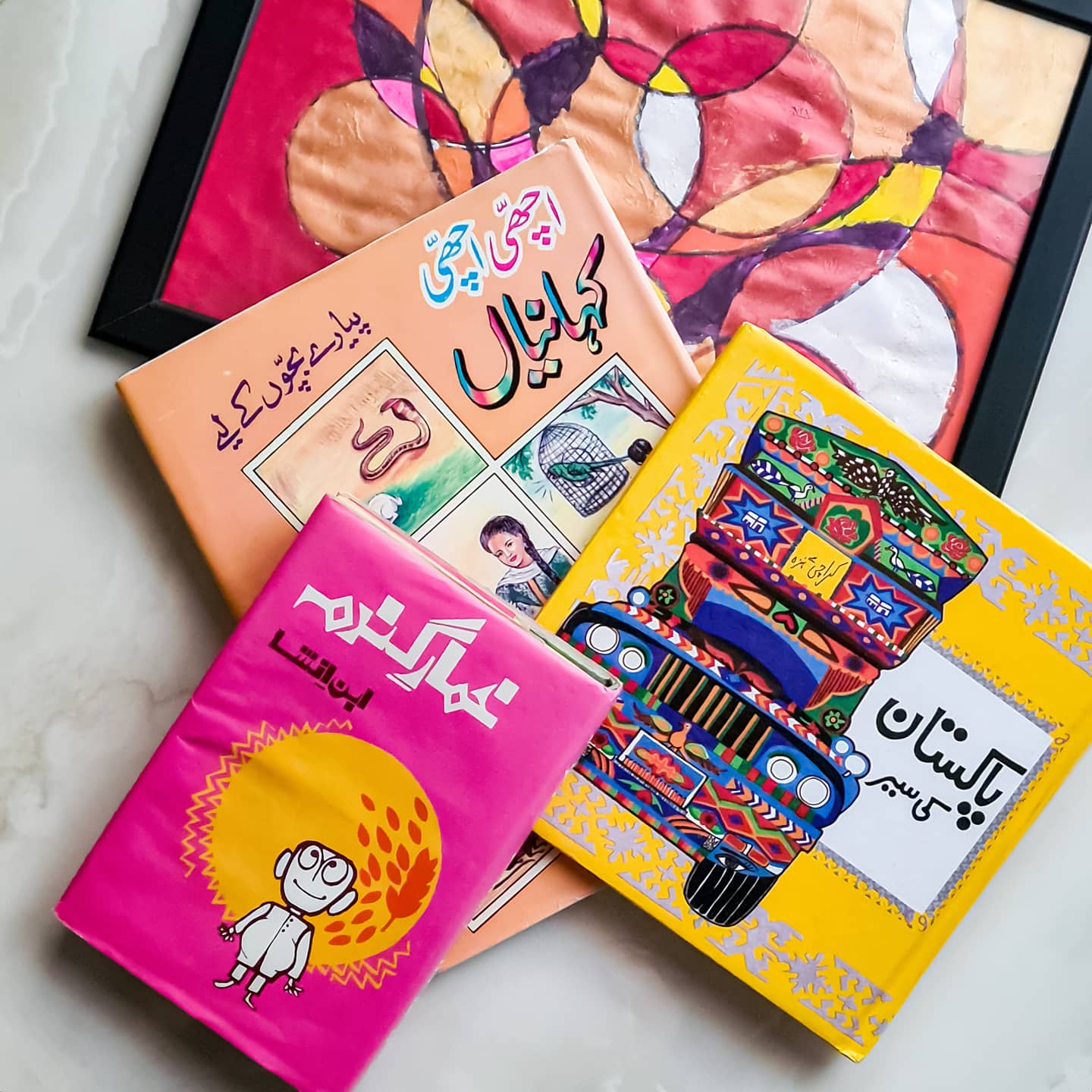Sunday Discussion: Are We Giving Up On Our Mother Tongue?
My mother tongue is Urdu. As an expat living in the Middle East for the last 10 years, one of the things that I am most ashamed of is that I have not been too diligent in teaching my children my mother tongue. Of course, they speak the language and understand it. Two of them can even read it, but it is like a foreign language to them; they will never use it if they can get away with using English.
When we first moved away from Pakistan, my children were 5.5 years, 2 years, and 10 months old. The eldest knew how to read and write Urdu. Today he is the only one who is most comfortable speaking it. The younger two have not known a single day of schooling in Pakistan. It was always up to me to teach them.
I remember I asked my aunt to send me some Urdu and Math workbooks when the younger ones became old enough to go to school. My aunt, being the teacher that she is, got a huge stack of workbooks, 3-4 different ones, each ranging from kindergarten to Grade 7. I would love to say that I was able to teach my kids something from them, but that isn’t true.
Over the next few years I would try and fail time and again to get them to learn the language. The eldest one, being the quick study that he is, and because he already had a rudimentary knowledge of the language, was the only one who seemed to get something out of these exercises. The middle one has only recently started taking Urdu classes along with the eldest, and is making better progress. It’s the youngest one who makes me despair. She is the weakest when it comes to Urdu. Yet she is the only one not taking a class to remedy this situation!
While this is a problem for me and my husband because we love our language, and want our kids to remain in touch with their motherland, it is not the same with all parents, even the ones living in Pakistan! Over the last 10 years, the thing that has pained me the most while visiting my country has been the fact that people have stopped using Urdu. Everywhere I go, I see parents talking to their small kids in English. It is like they are trying to prove something that doesn’t need to be proven.
I used to be happy going back because I felt that my kids would learn something while they were there. All 3 of them had strict instructions to talk in Urdu to everyone. Unfortunately, many adults still think that my kids provide the perfect opportunity for their kids to polish their English language skills! It might seem over the top, but I have had women ask me to tell my children to speak in English to their kids, as they don’t allow their children to talk in Urdu in their schools, and as a consequence, at home! (This was truly a facepalm moment for me, and the lowest when talking about my language, sadly.)
Language is a big part of national identity for any nation. It is one of the major factors that differentiates people from the rest of the world. When I see young people in my country saying that they took easy Urdu in school, and feeling proud of it, I feel a pang in my heart. All over the world people take pride in their mother tongue. They prefer to talk in their own language than in any other; why is it that we are so different? Why are our schools not promoting our own language? I have seen schools here in the Middle East insisting on teaching Arabic to all students, especially the locals, so that they don’t lose their language to modern schooling and English. Yet, here we are, churning out students who are proud of the fact that they are weak in their own language.
Urdu has been the chosen language of great poets and authors for centuries, yet these great writers find very little readership today. How many young people can boast about having read Manto or Naseem Hijazi or Intizar Husain? How many know about Quratulain Haider or Khadija Mastoor or Ismat Chughtai? Are there any twenty-somethings who can claim to know Mir or Ghalib or even Faiz or Faraz or Nasir Kazmi?
We, as a nation, and I’m not excluding myself, are doing a grave injustice to our beautiful language. It is good to move with the world and become a global citizen, yet it is also essential to keep your own individual identity, to be unique in your own right. In trying to keep up with the world, we seem to be losing out on keeping up with our true selves. We have to collectively try and undo the damage that we have done to our own language. We need work hard to teach our future generations, or we are the ones who will turn out to be the eventual losers.
I don’t mean to say that everyone should suddenly start reading huge tomes written in a language that you find incomprehensible. I just want us to start loving our mother tongue and trying our best to show that love. Once we start trying, our future generations might also follow suit and save Urdu from becoming a forgotten language.

